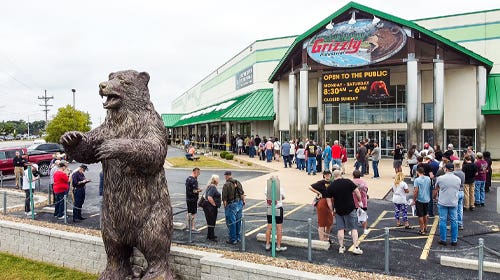Black walnut sales are hitting a groove
As domestic wood markets begin to rebound, walnut has become the cream of the crop for many retail and wholesale dealers. The current trend to darker woods has made walnut…
As domestic wood markets begin to rebound, walnut has become the cream of the crop for many retail and wholesale dealers. The current trend to darker woods has made walnut a more popular choice for cabinetmakers and furniture makers than cherry or hard maple.
{loadposition position10}
"It's hot right now," says Michael Johnson, owner of Johnson Creek Hardwoods in Mount Carroll, Ill. "Throughout the summer I have sold more walnut than I ever have. Much of it has been in the 8/4 size; a lot of it has been large slabs for matched tables and things like that.
"Walnut has been hot for a couple of years now and I really think that is going to go on for quite a bit longer."
"Every other phone call for the last seven months has been for walnut quarters," says Ben Barrett of Berkshire Veneer Co. in Great Barrington, Mass. "They call and say, 'I need 12' net walnut [quartersawn]. I need it perfectly gun-barrel straight with no pins, no flares, no gum, no knots and no nothing.' It is clearly the flavor du jour this year. For the calendar year 2010, it has just been walnut mania."
Black walnut (Juglans nigra) primarily grows in Kansas, Oklahoma, Missouri, Illinois, Indiana and Kentucky. The trees reach heights up to 100' with diameters of 3' to 4'. The sapwood is nearly white, while the heartwood is brown to chocolate-brown. Walnut is often steamed at a mill or kiln to darken the color of the sapwood to match the color of the heartwood. Walnut represents about 5 percent of U.S. hardwoods.
"It's moving pretty good. A lot of orders, but not in any great quantities," says Christ Groff, owner of Groff & Groff Lumber in Quarryville, Pa. "Walnut is moving more than anything else. I think it is just a trend. I don't know if it is moving more than usual. We always move a bunch of it because we have it unsteamed.
"When it is unsteamed, you get the real color of it; it's not washed out. When they steam it, they steam the dark to make it lighter. Ours is natural, so we just trim the sap off and you get the bright colors - the reds, purples, everything. The high-end guys want the good stuff unsteamed. The pricing is probably a little more than the regular steamed stuff, but our guys like it because they think it is a higher-end product. We sell it to furniture and cabinet guys in all thicknesses, 4/4 through 16/4."
Black walnut is a superior furniture and cabinetry wood and is also used for millwork, boatbuilding, flooring and veneer. Black walnut's beauty, stability and ability to take a fine polish have made the wood a staple for gunstocks.
The wood is straight-grained, although occasionally wavy and irregular. Walnut produces a large variety of figure, including crotch, stripe, ribbon, mottle, swirls and occasionally burls. The wood is moderately dense, but strong in relation to its weight. Black walnut works well with hand and power tools, holds nails and screws satisfactorily and glues without a problem.
Two years ago, researchers discovered that a sudden decline in black walnut in Colorado was due to a combination of the walnut twig beetle and a previously unknown fungus that infested the trees by the hundreds of thousands, causing cankers and cutting off the flow of nutrients. In July, the U.S. Department of Agriculture announced confirmation of thousand cankers disease in Knoxville, Tenn. - the first occurrence in the native range of black walnut. Warnings have been issued against transporting walnut logs from areas of known or suspected infestation. However, the transport of kiln-dried walnut poses no threat.
Retail prices for 100 bf of kiln-dried, 4/4 Select & Better black walnut, surfaced on two sides, ranged from $5.25 to $6.10/bf in the Northeast; $5.80 to $6.25/bf in the Southeast; $4.75 to $5.50/bf in the Midwest; and $6.80 to $7.35/bf in the West.
Wholesale prices for 1,000 bf of kiln-dried 4/4 Select & Better black walnut ranged from $4,700 to $5,250/mbf in the Northeast; $5,475 to $5,450/mbf in the Southeast; $4,500 to $5,100/mbf in the Midwest and $5,950 to $6,850/mbf in the West.
This article originally appeared in the December 2010 issue.







